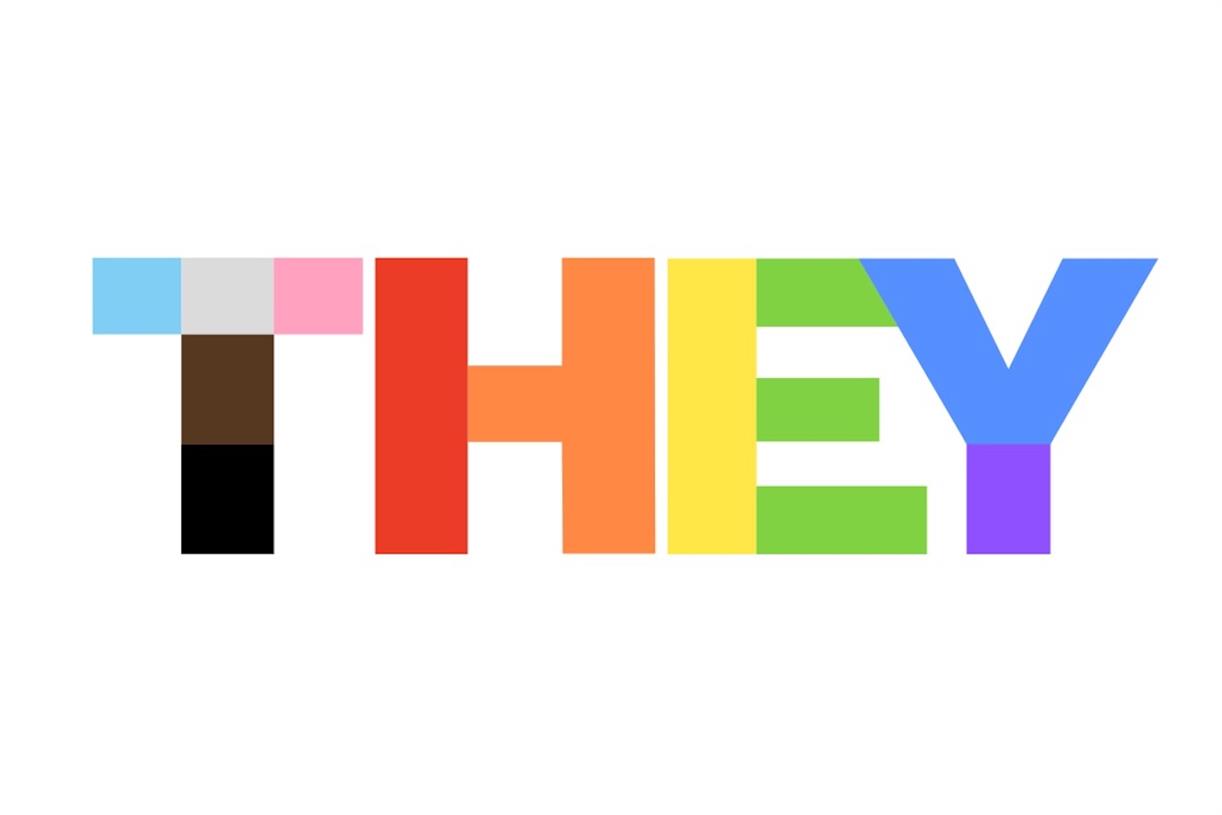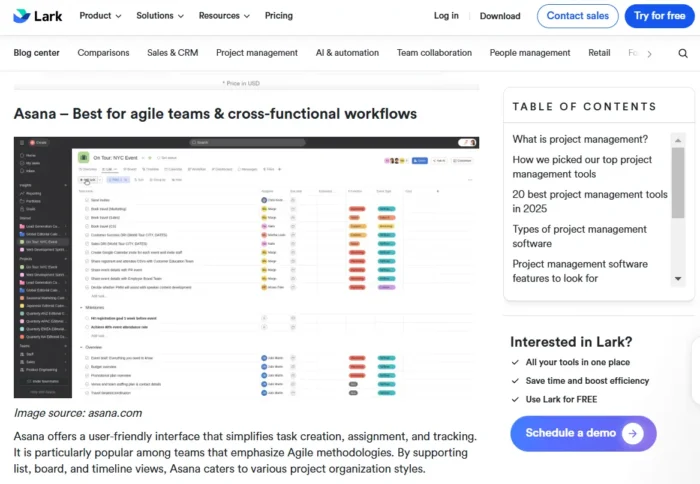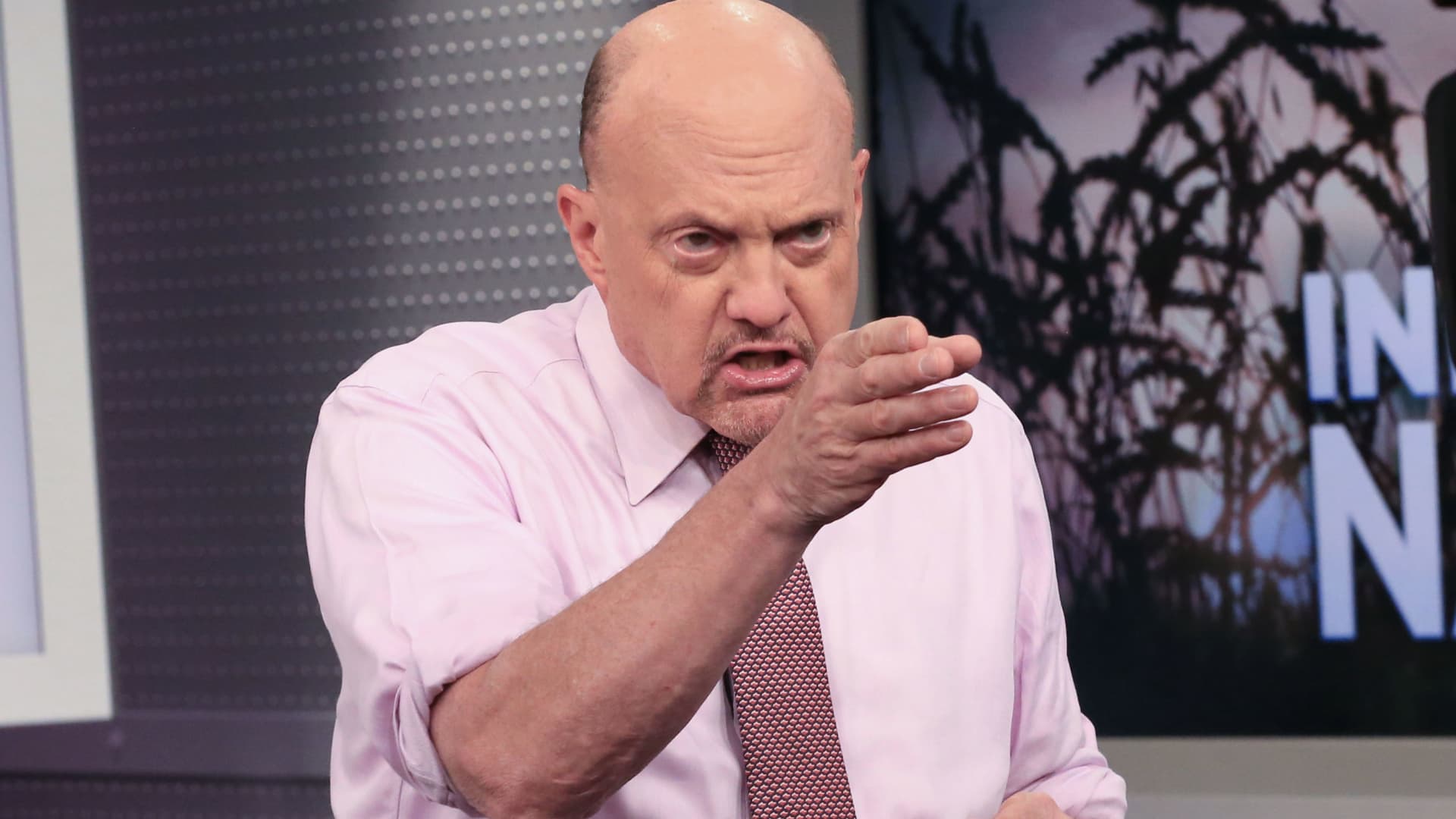31 Influencer Marketing Stats to Know in 2023
Influencer marketing harnesses the power of word-of-mouth — and scales it via social media. As a result, it's become a leading marketing strategy in 2023.

Influencer marketing harnesses the power of word-of-mouth — and scales it via social media. As a result, it's become a leading marketing strategy in 2023.
Here, we've rounded up 31 stats to give you a better picture of the influencer landscape, its effectiveness, and the platforms that get the most traction in this space.
Let's dive in.
Table of Contents
The Influencer Marketing Landscape
Influencer Marketing Effectiveness
Influencer Marketing on Instagram
Influencer Marketing on TikTok
Influencer Marketing on YouTube
Influencer Marketing on Facebook
What is influencer marketing?
With influencer marketing, brands employ online influencers to promote their products or services. This makes influencers the middleman between brands and their audience.
While a recommendation from a friend or family member is valuable, it's only a one-to-one interaction. But with influencers, this interaction could happen with hundreds, thousands, or even millions of people.
Plus, influencers work hard to gain their audience's trust, making their recommendations more persuasive than other forms of advertising.
For all the reasons above, influencer marketing has become one of the fastest-growing marketing strategies today. So, if you're looking to tap into new audiences online, working with influencers can be a powerful way to do just that.
Types of Influencers
Influencers fall into different tiers of "celebrity," typically based on their audience size. The three most common types are macro, micro, and nano. Let's take a closer look at each.
Macro influencers
Macro influencers are a step down from traditional celebrities and mega-influencers. They have a prominent online presence, commanding anywhere from 100,000 to 1 million followers. In addition, they have a broader audience than micro and nano influencers because they cover a range of topics (instead of niching down).
Micro influencers
More than half of marketers who invest in influencer marketing work with micro-influencers. A micro influencer has between 1,000 to 100,000 followers. Their content typically revolves around a specific topic, passion, or niche, making them respected experts in their field.
Nano influencers
Nano influencers have the smallest audience of the three, but typically spark the most engagement. These influencers have less than 1,000 followers and operate within a super niche community. They've built an active and loyal community who are susceptible to recommendations.
Typically, nano influencers work with brands for little to no pay, instead receiving free products in exchange for a review or endorsement on social media.
31 Influencer Marketing Stats to Know in 2023
The Influencer Marketing Landscape
1. In 2022, the influencer market in the U.S. was valued at a record 16.4 billion.
2. 1 in 4 marketers currently leverage influencer marketing.
3. 72% of Gen Z and Millennials follow influencers on social media.
4. 89% of marketers who currently engage with influencer marketing will increase or maintain their investment in 2023.
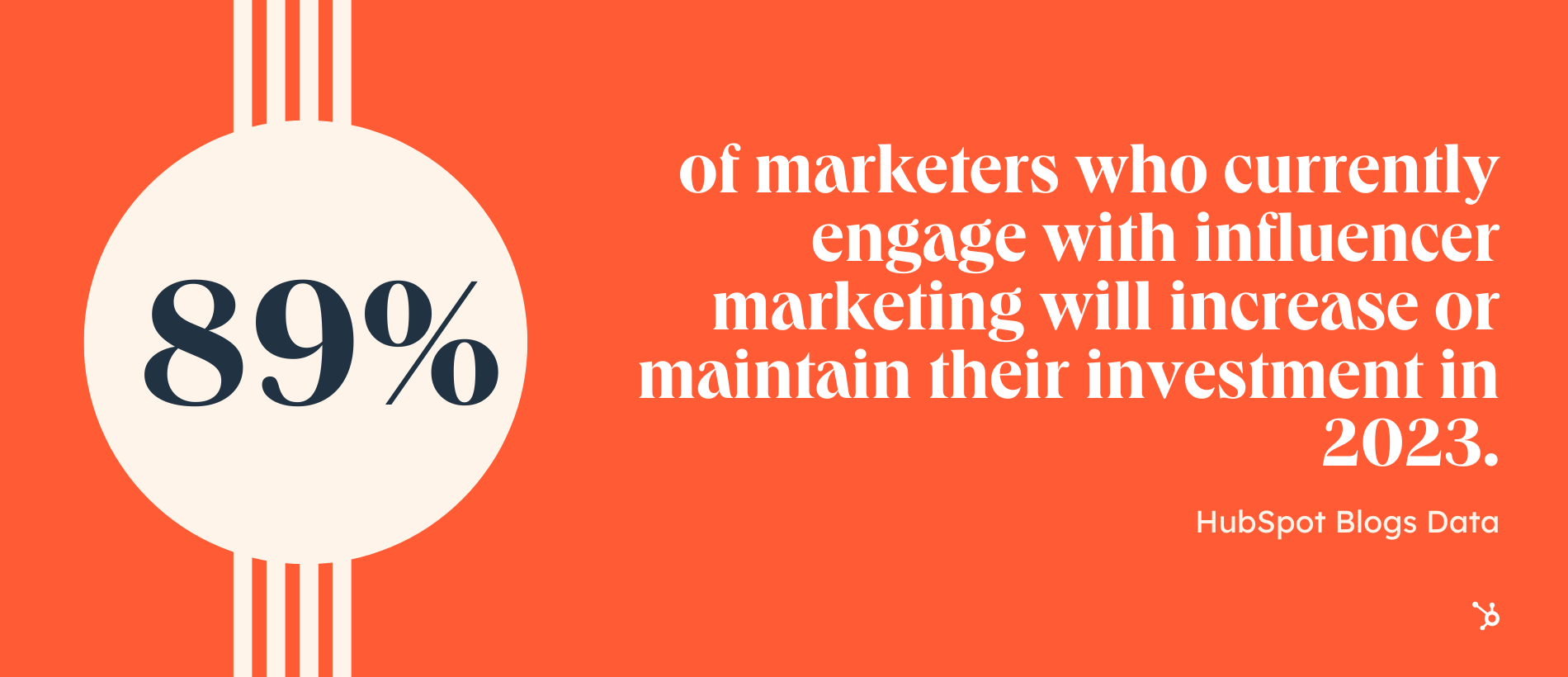
5. 17% of marketers plan to invest in influencer marketing for the first time in 2023.
6. 38% of marketers say generating sales was their top goal for influencer marketing in 2022.
Influencer Marketing Effectiveness
7. 50% of Millennials trust product recommendations from influencers. This drops to 38% for product recommendations from celebrities.
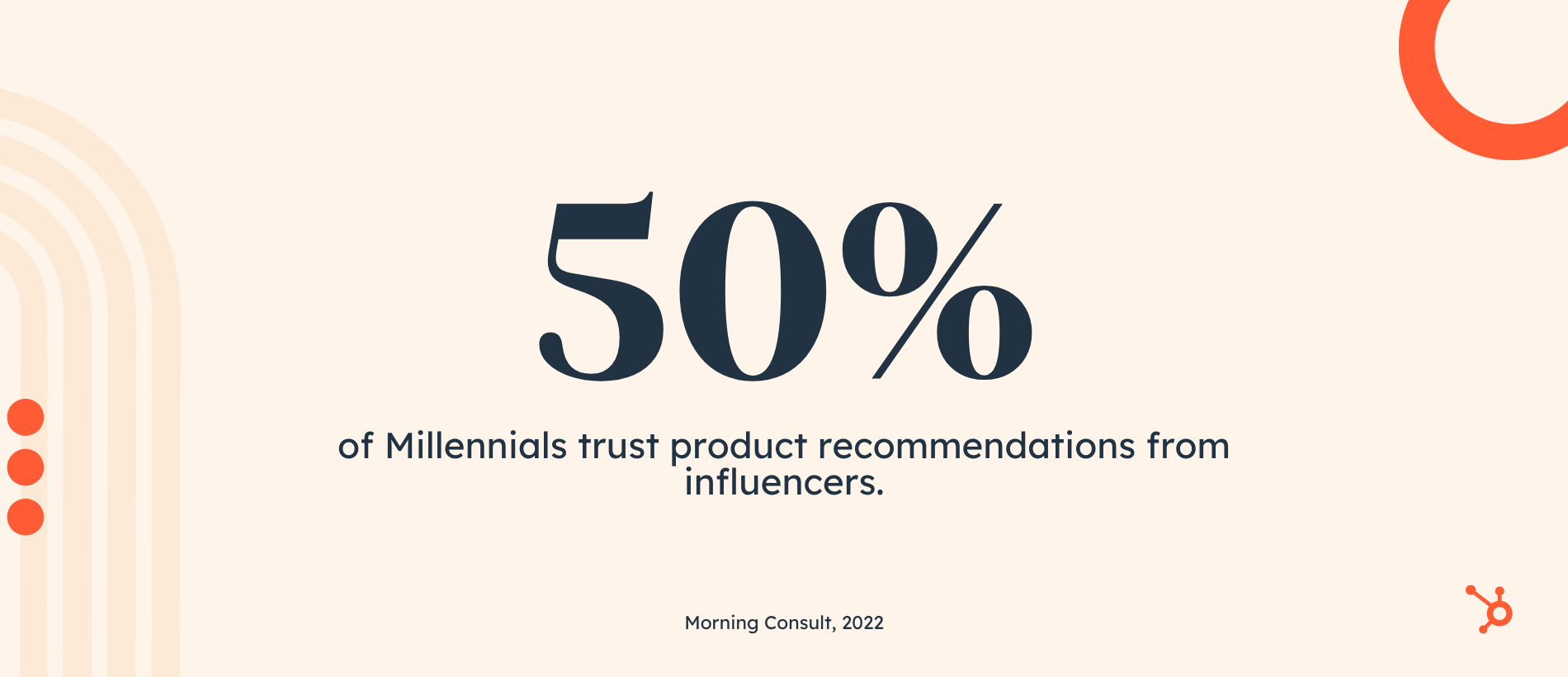
8. 92% of marketers believe that influencer marketing is an effective form of marketing.
9. 33% of Gen Z-ers have bought a product based on an influencer's recommendation in the past three months.
Micro Influencer Stats
10. Micro-influencers generate up to 60% more engagement than macro influencers.
11. 44% of marketers say that the biggest benefit of working with micro-influencers is that it is less expensive.
12. 56% of marketers who invest in influencer marketing work with micro-influencers.
.png?width=1900&height=820&name=Influencer%20Marketing%20Stats%203%20(1).png)
Influencer Marketing on Instagram
13. Instagram was the most-used influencer marketing platform in the United States in 2022.
14. 72% of marketers used Instagram for influencer campaigns in 2022. This number is predicted to grow by 4.1% in 2023.
15. There were 3.8 million posts tagged with #ad on Instagram in 2021.
16. Lifestyle and beauty were the most popular categories among global Instagram influencers in 2021.
17. In 2021, 86% of marketers from the United States enabled shoppability functions in their influencer marketing campaigns on Instagram.
Influencer Marketing on TikTok
18. 45% of marketers used TikTok for influencer marketing campaigns in 2022. This number is predicted to grow by 4% in 2023.
19. A TikTok from a macro-influencer (someone with 100,000 to 1 million followers) receives 38,517 views on average.
Influencer Marketing on YouTube
20. 28% of consumers from the United States report following at least one virtual influencer on YouTube.
21. Dance, music, and gaming were the most popular categories for YouTube influencers in 2021.
22. YouTube micro influencers (those with 100,000 to 1 million followers) have the highest engagement rates on the platform.
23. In 2021, YouTube was the most popular platform to watch gaming influencers for users in the United States and Great Britain.
Influencer Marketing on Facebook
24. 52% of marketers used Facebook for influencer marketing campaigns in 2022.
25. Influencer videos accounted for 60% of video views on Facebook in the United States in 2022.
Influencer Marketing Budgets
26. In 2022, 39% of marketers invested 10 to 20 percent of their marketing budget into influencer marketing.
27. On average, businesses generate $6.50 in revenue for every $1 invested in influencer marketing.
28. In 2022, influencer marketing spend jumped from 3.69 billion to 4.14 billion in the U.S.
29. The average price per post from a TikTok mega-influencer (someone with 1+ million followers worldwide) was $1,034 dollars in 2021.
30. The average price per post from an Instagram mega-influencer (someone with 1+ million followers worldwide) was $1,200 minimum in 2021.
31. The average price per sponsored video from a YouTube mega-influencer (someone with 1+ million followers worldwide) was $2,500 minimum in 2021.
Over To You
We hope this round up gives you a better picture of the influencer marketing landscape in 2023, as well as a glimpse into the platforms that can take your influencer campaigns to the next level.

 Tekef
Tekef 








_2.jpg)




